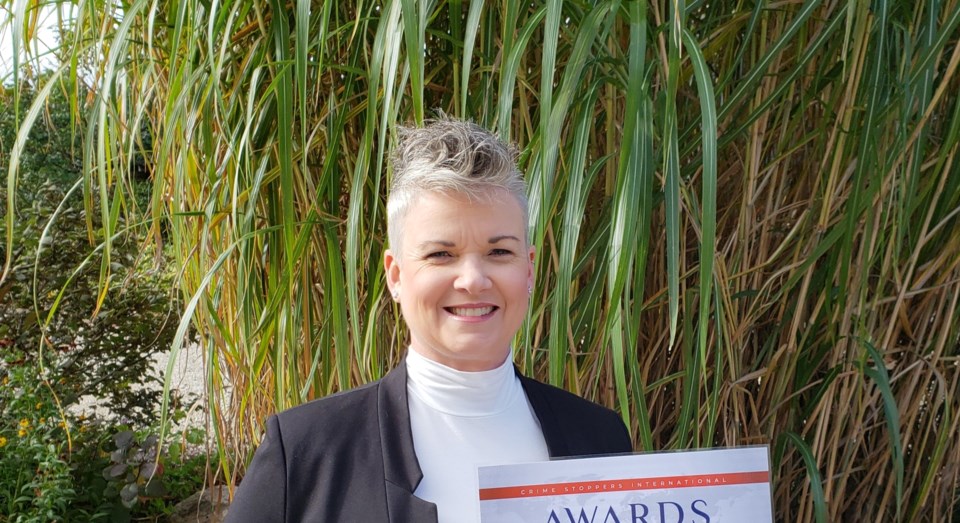GUELPH/WELLINGTON – A not-for-profit organization aimed at putting a dent into local crime and awareness is looking to put a spotlight on hate crimes during a milestone year.
Crime Stoppers Guelph Wellington (CSGW) was formed in August 1988 and still exists as one of 37 Crime Stoppers associations in Ontario, where anonymous tips can be submitted to the non-police agency to aid in solving crimes which could result in a cash reward.
CSGW program coordinator Sarah Bowers-Peter explained in a phone interview this is still the focus with the program receiving over 23,000 tips in about 35 years.
Over the 35 years, over 23,000 tips to CSGW have resulted in over 1,500 arrests, 2,300 cases closed, $180,000 in rewards paid and nearly $38.5 million in recovered property, drugs and cash seized.
In recent years, CSGW has also begun getting involved in education around crime prevention.
This started with human trafficking, where CSGW would use social media and give presentations in the community and at schools to raise awareness about this issue. This has since expanded to fraud prevention as well.
“If we can prevent a crime from happening, that’s still a Crime Stoppers mandate right?” Bowers-Peter said.
The next focus for CSGW presentations and education will be on hate crimes which Bowers-Peter said ties into the theme of this year’s Crime Stoppers month in January of “stand up, stand together.”
“We’ve had a number of years that had been pretty negative and pretty divisive and how that has manifested itself has been through some people feeling that it’s okay to express themselves in a way that is harmful to groups such as the LGBTQ2S+ community, religious or ethnic groups,” Bowers-Peter said.
“We really have to get our arms around the fact that we are all in this together, we have to do better and take care of each other.”
Bowers-Peter said the important thing is not the volume of tips received which can ebb and flow over the years depending on if there’s high profile investigations but the quality of the information.
“That’s what was so remarkable about 2021, not only did we have a slightly higher volume of tips, the quality of the tip was greater which meant the outcomes as far as recovered property and arrests were greater,” Bowers-Peter said.
She noted because 2021 was a bit of an anomaly of a year, the stats for 2022 releasing later during January Crime Stoppers Month will appear to have dipped a little bit.
“Most programs saw a drop in tip volume during the pandemic, we did not,” Bowers-Peter said.
A large change Crime Stoppers associations are seeing is how tips are received, with online tips beginning to outnumber phone line tips over the past few years.
“It gives people the options and having that digital capability has really opened up accessibility for people to be able to provide information much quicker,” Bowers-Peter said.
As the program continue into the future, Bowers-Peter said CSGW will continue to respond to the changing world but couldn’t predict what that might look like.



